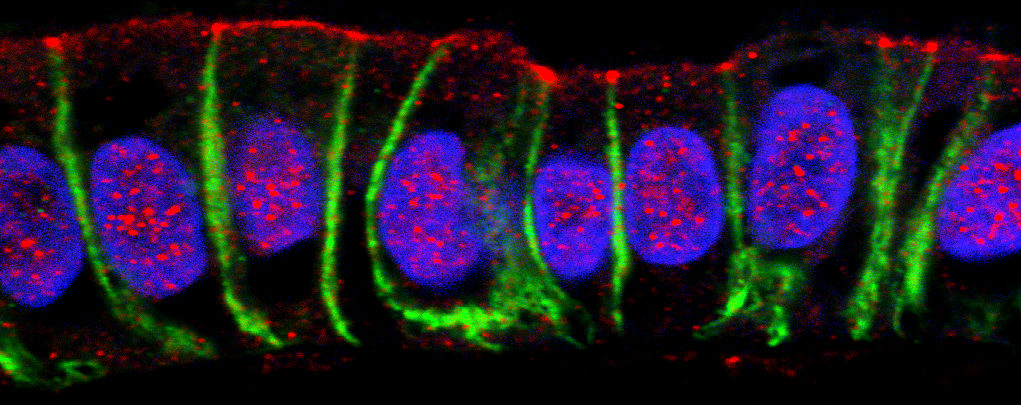All multicellular organisms have a problem: surviving in a world that is already fully occupied by bacteria and other single celled organisms. We call this problem symbiosis. The primary solution to this problem is mutualism, which intimately links the survival of individual organisms and as a result has shaped the evolution of both bacterial and multicellular life.
This interplay is central to the maturation and function of the human gastrointestinal tract. Our guts are colonized by mutualistic and other bacteria at birth. These bacteria come from a variety of sources, including our moms and other family members, our environment, and the things we eat early in life. Once these bacteria arrive in our guts, some of them grow rapidly and begin to form dense communities with increasing abilities to help us process the food we eat, regulate our immune response, and many other functions that we have recently begun to understand. At the same time, our intestines are maturing rapidly by generating digestive cells, secreting protective mucus and antimicrobial compounds, and formulating adaptive immune protections that will affect us for the rest of our lives.
The interplay between microbial colonization and expansion in the gut and the development of the gut itself has been difficult to study. There are no germ-free human research subjects. In my research I apply innovate cell culture model systems that allow us to grow germ-free human intestinal tissue in the lab. Our work has shown that these tissues can sustain symbiosis with mutualistic bacteria and that this relationship kickstarts maturation of the lining of the human intestine.
I am currently using this system to explore the factors that contribute to the failure of the intestinal maturation in some premature infants. Identification of specific conditions that determine the success or failure of intestinal maturation following bacterial colonization may lead to treatments for devastating conditions such as necrotizing enterocolitis.
